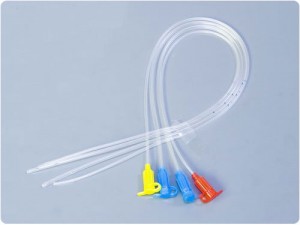
The New York Times recently highlighted the practice of force feeding of patients who cannot eat on their own and how inhumane it can actually be. Historically (and recently) highlighted for its cruelty as used in Guantanamo Bay and in places like Israel, this same ethical debate is lacking in our hospitals and nursing homes, where it is routinely done, particularly to the elderly and patients with dementia.
This is the case in spite of study after study that has shown that it actually doesn’t provide the benefits that some in the healthcare industry claim. In fact, those same studies show that feeding these patients by hand may be more labor intensive, but it provides more benefits and avoids some of the nasty side effects of feeding tubes, including the development of pressure ulcers and the complications that come with the tubes sometimes getting clogged or spreading infection. Hand feeding is particularly important for patients with dementia because tube feeding has specifically been shown to be harmful to them.
The Force Feeding Process
Typically, feeding tubes are composed of 20 inch silicone tubes, which are placed in the body through the nostril, through the back of the throat until they reach the stomach or small intestine, all without anesthesia. It is, reportedly, a very painful process.
Who Supports It
According to surveys, most physicians still believe that they improve survival in patients. And, in a trend that has been highlighted recently covering many areas of medicine, it is also part of a system that is “over-treating” patients in general in place of less aggressive care, specifically where there are financial incentives to do so. Reportedly, feeding tubes tend to be overused in for-profit nursing homes, where families are charged a hefty price when they are used on their loved ones. In addition, obviously, they require less overall staff time than hand feeding, which can save a facility money.
Solutions?
How can we change this? For one, the financial incentives that accompany forced tube feeding need to be removed. In addition, families would have to become more comfortable with respecting their loved ones’ wishes should they no longer want to eat or be force fed (including the refusal to be hand fed) because these tubes can cause them severe agony.
In some instances, force feeding tubes could constitute nursing home or hospital abuse, particularly if/when they are used to make the staffers’ jobs easier and not as a last resort. Complications arising from prolonged force feed can include serious medical and even psychological issues. They can also include vomiting, nausea, constipation, and even expose people’s immune systems to serious bacterial infections. And even if they are used for a short period of time, staffers are supposed to transition patients back into eating actual food.
Let Our Medical Malpractice Lawyers Assist You Today
If you feel that improper, harmful practices were committed against you or a loved one, a case can be brought arguing that there were injuries and even fatalities related to these practices. Contact the medical malpractice attorneys at Harrell & Nowak today for a free consultation and let us help you.
